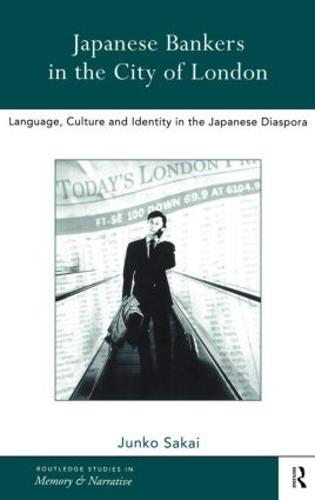Overview
The globalisation of the world economy today means that more and more people are expieriencing working in another culture. Focusing on the real experiences of workers in Japanese transnational finance companies, this book not only throws light on this specific case, but at the same time raises timely questions and insights into the newly-emerging multicultural work experiences worldwide. Japanese Bankers in the City of London reflects on contemporary discussions in sociology, anthropology and cultural studies of individual global movement and cultural interaction. Whilst there are some studies on Japanese multinational companies in Europe, they have typically assumed stereotyped differences in management systems and work cultures. This book, however, breaks the mould by looking at the culture and individuals subjective views about their working lives and also their own world views; this perspective illuminates the difficulties in working relationships between Japanese and Europeans. Junko Sakai reveals, through 100 transcribed interviews, transnational working experience in the context of individuals global movements between East and West, and explores how the ideals and interactions of ethnicity and culture affect their lives. Japanese Bankers in the City of London corrects a number of myths; it shows how cultural differences are really talked about among staff in the face of other cultures, rather than taking standard differences between cultures as given truths. This book gives voice to Japanese men and women whose voices are rarely heard, and to the British who have worked for non-Westeners in the West. It is also a significant and timely analysis of the increasing influence of non-Western companies in the city. It will be of great interest to cultural anthropologists, business historian, sociologists and scholars in Japanese and Asian studies, as well as those involved in international finance and management.
Full Product Details
Author: Junko Sakai
Publisher: Taylor & Francis Ltd
Imprint: Routledge
Volume: No.4
Dimensions:
Width: 15.60cm
, Height: 1.90cm
, Length: 23.40cm
Weight: 0.566kg
ISBN: 9780415196017
ISBN 10: 0415196019
Pages: 296
Publication Date: 18 November 1999
Audience:
College/higher education
,
General/trade
,
Tertiary & Higher Education
,
General
Format: Hardback
Publisher's Status: Active
Availability: In Print

This item will be ordered in for you from one of our suppliers. Upon receipt, we will promptly dispatch it out to you. For in store availability, please contact us.
Reviews
'...offers a rare and welcome insight into the inner lives and psychology of Japanese bankers...Sakai delivers a rather unique anthropological interprestation of human narratives and life stories , displaying a rich tapestry of interwoven discourses that are accentuated by 'us' and 'them' remarks...The book is a fascinating read, and the subject is one of considerable practical and theoretical significance.' - Tomoko Hamada '[This] is the kind of book which stays with you after you have turned the final page, inviting you to reflect on your own multicultural experiences and your own notions of cultural identity' - The Japan Society
Sakai's heavy emphasis on life story interviews provides convincing insights into the often grim realities of the personal circumstances involved. It would be no exaggeration to say that anyone thinking of working in a cross-cultural environment would be well advised to read this book on the look-before-you-leap principle. -Stephen Church in Japan Quarterly, July-September 2000, pg. 97.
Sakai's heavy emphasis on life story interviews provides convincing insights into the often grim realities of the personal circumstances involved. It would be no exaggeration to say that anyone thinking of working in a cross-cultural environment would be well advised to read this book on the look-before-you-leap principle. -Stephen Church in Japan Quarterly, July-September 2000, pg. 97. <br>




